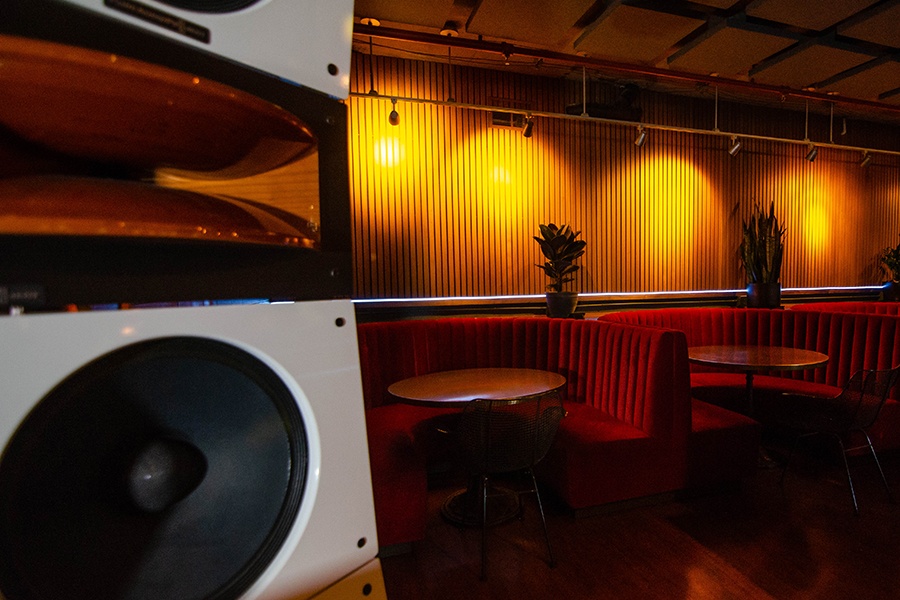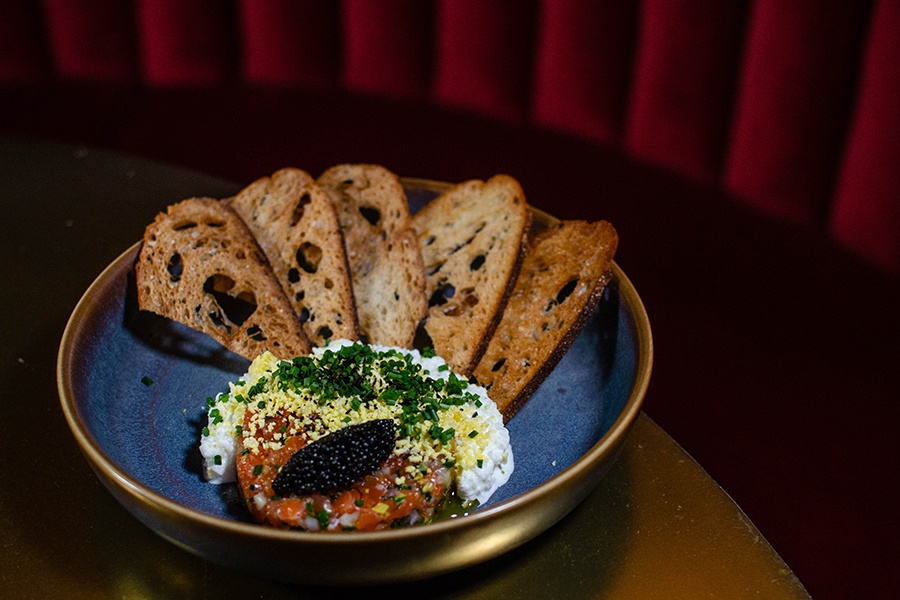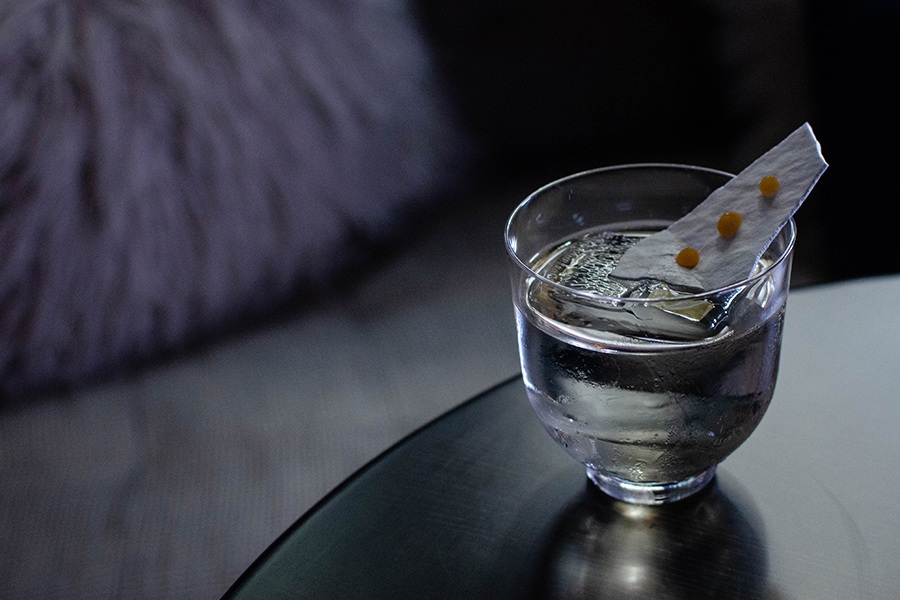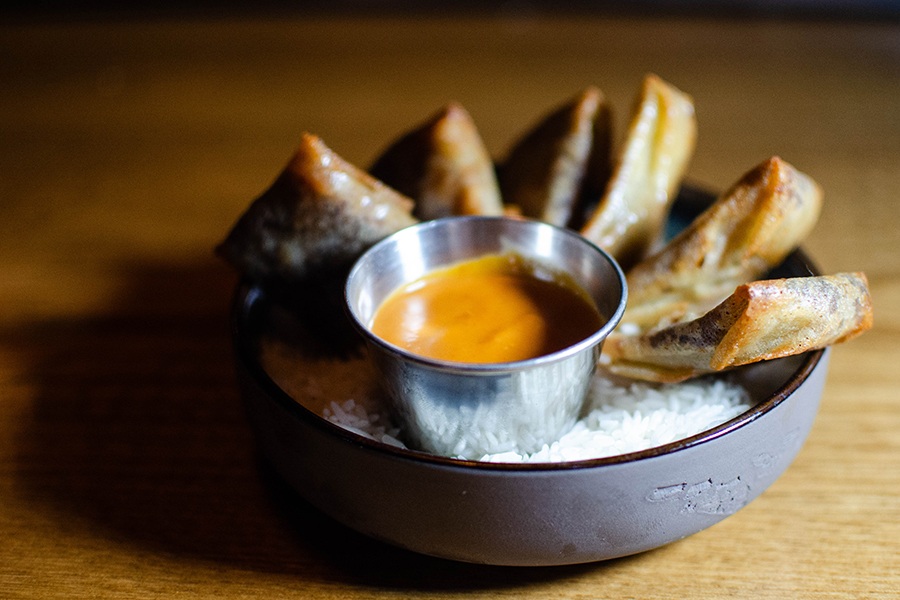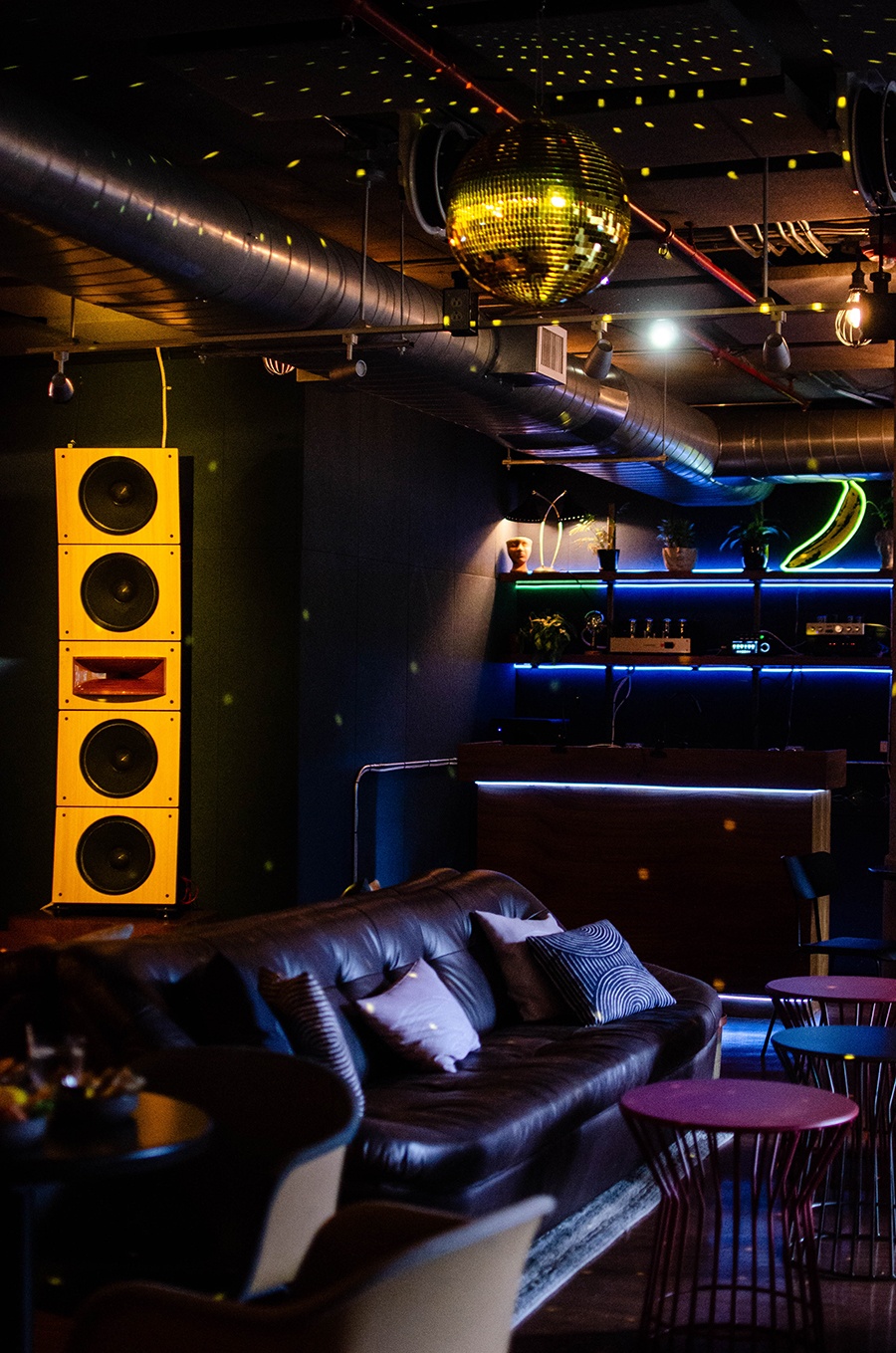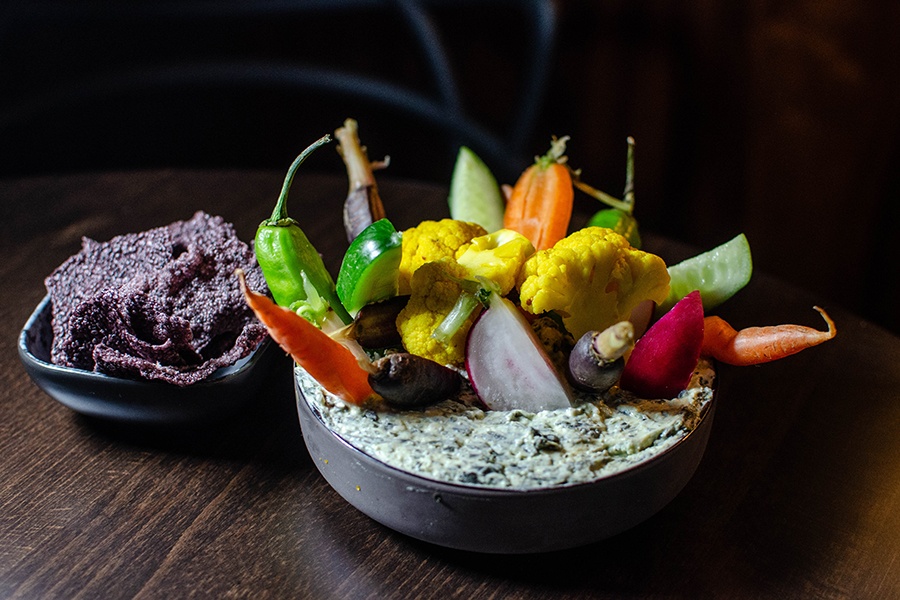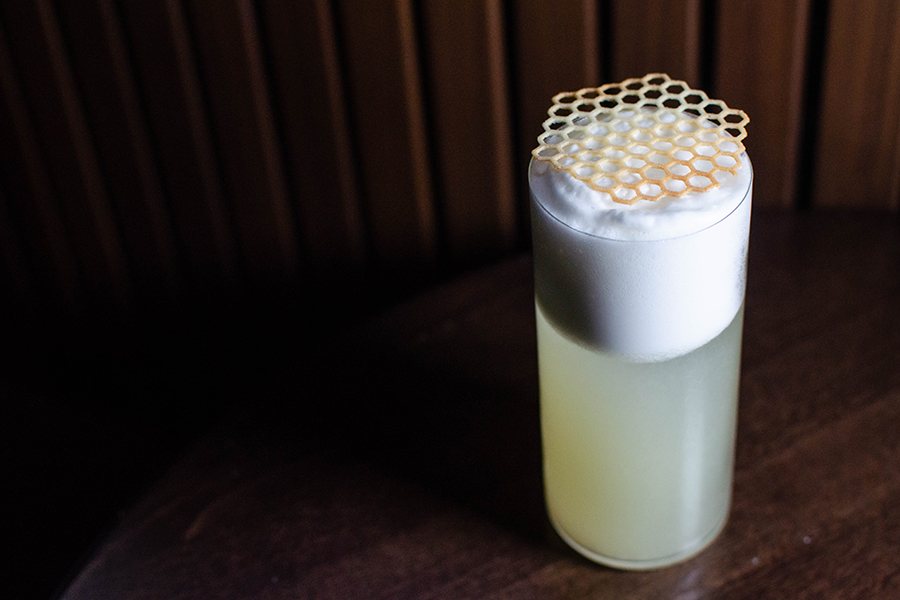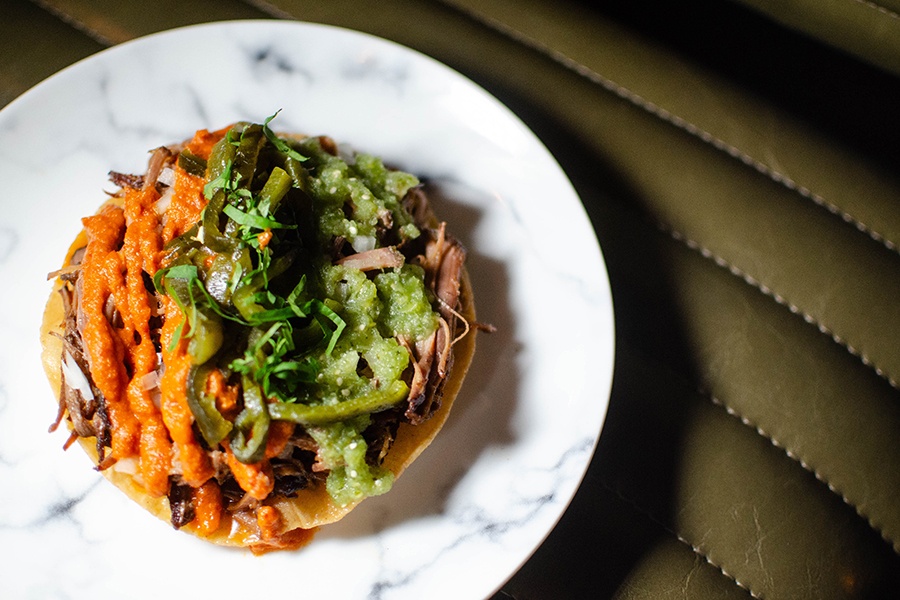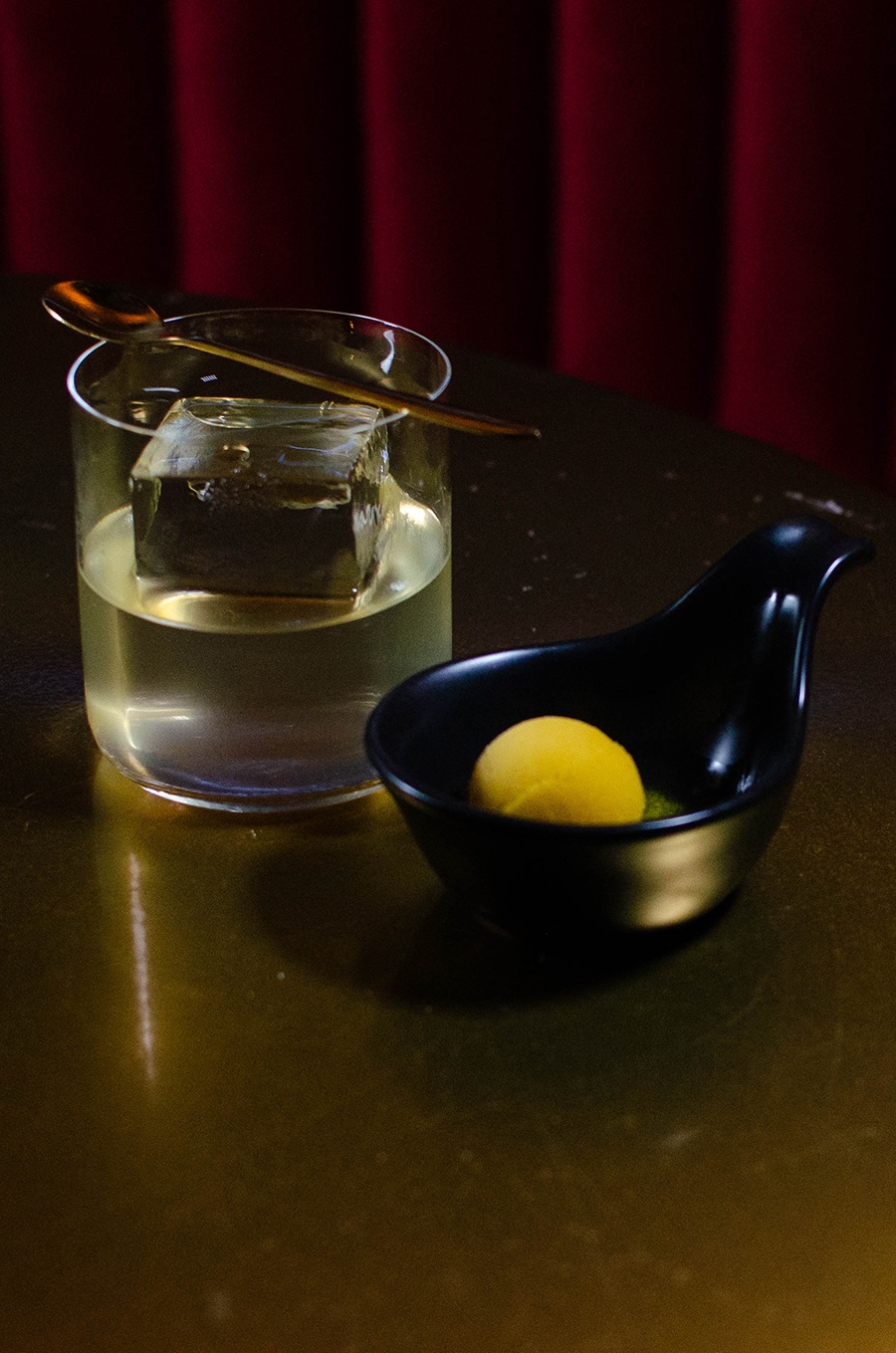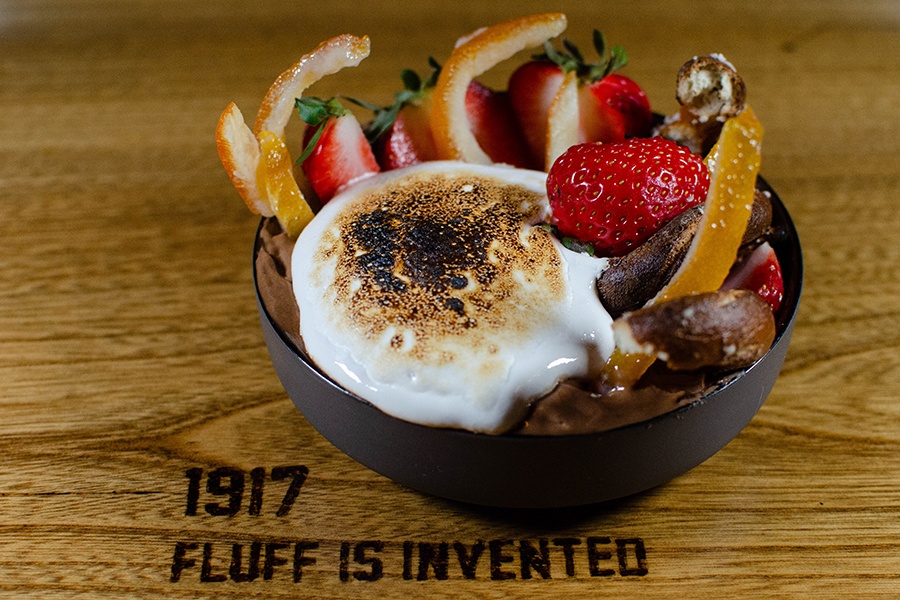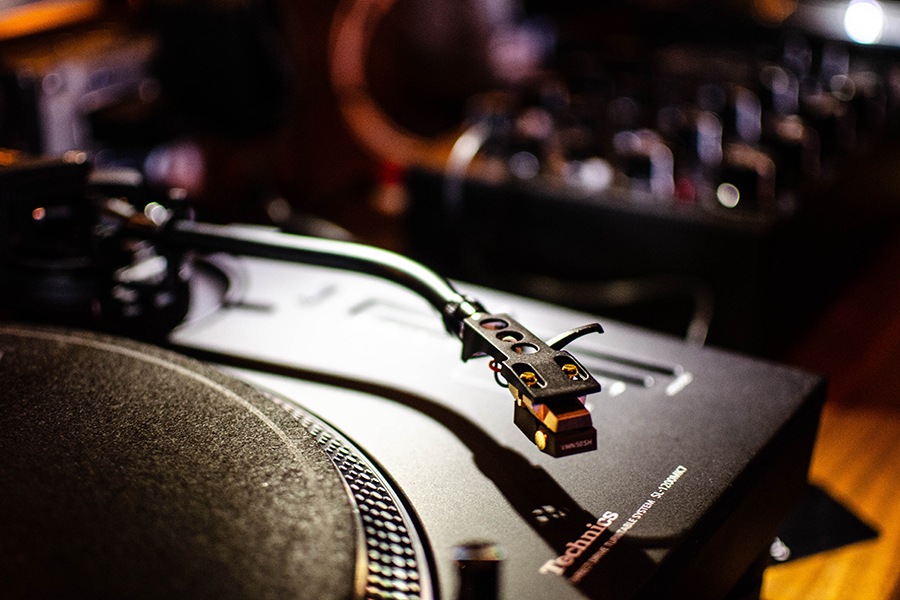There’s a New ‘Listening Lounge’ in the South End
From the team behind the Beehive and Cósmica, Spy Bar is the latest version of a new-to-Boston trend that dates to 1950s Japan.
Down a winding staircase from the Revolution Hotel lobby awaits the South End’s Spy Bar, a new music-focused spot that’s “like a ’70s lounge meets your grandparents’ basement,” as owner Jack Bardy describes it. The venue is part of a recent wave of “listening lounges” to debut in Boston (although the trend’s roots trace back to 1950s Japan)—carefully designed spaces that emphasize proper acoustics and intricately curated playlists.
Spy Bar—sibling to the South End’s iconic live jazz venue the Beehive and Mexican restaurant Cósmica (which is also at the Revolution)—is targeting a “mature audience,” says Bardy, the sorts of people who want to be able to chat while listening to high-fidelity music and drinking high-end cocktails. Some of those drinks are extra-fizzy highballs, courtesy of a special Japanese carbonation machine. Some are “freezer-door” classics (served as cold as, well, the freezer door), like Negronis and Old Fashioneds. Some are dessert-inspired (but not dessert-y) concoctions that play with clarification and other precise techniques, such as the Mango Lassi, a clear yellow rum-based cocktail that looks nothing like the ubiquitous smoothie-style drink for which it’s named.
The highball machine is a callback to the Japanese roots of listening lounges, where people would “gather in bars, bring their personal collections of vinyl, and drink Japanese whiskey” after World War II, says beverage manager Marco Anaya, who formerly managed Drink, the gone-but-not-forgotten cocktail destination in Boston’s Fort Point. The Spy Bar team uses the machine to make whisky and vodka highballs, as well as gin and tonics, each using Japanese spirits from Suntory (which also manufactures the machine).
The freezer-door drinks are useful staples for those who don’t want to “get out of their comfort zone,” says Anaya, but they’ll also appeal to cocktail connoisseurs, with the lowered temperature yielding a “velvety, silky texture.” The classic cocktail approach continues, in a way, onto the “remixes” section of the menu, which fuses familiar drinks together. Take the Pablo Honey, for example, a Radiohead-referencing concoction that mixes pisco with pear cordial, elderflower, jasmine, honey, and tonic: It blends a traditional pisco sour with a gin fizz. “We took the best of both cocktails,” says Anaya, “to come up with something fun and unique.”
The first collection of Spy Bar’s rotating signature drinks (which might switch out a few times a year) takes its inspiration from pastries—and more specifically milk and the role it plays in everything from “creamy custards to delicate confections,” as the menu puts it. These clarified cocktails range from a bourbon-based drink that tastes like peanut butter and banana to peach cobbler and baklava creations. The aforementioned Mango Lassi is the current bestseller, says Anaya.
A small menu of snacks—duck confit pastilla, Ora King salmon crudo, etc.—rounds out the experience at the dark, sultry lounge, designed to complement the music and the cocktails, says Bardy. Chef Ryan Skeen, an alum of New York’s acclaimed Eleven Madison Park, oversees the kitchen. (And if you want a larger meal, sibling spot Cósmica is right upstairs with plenty of tacos and bigger entrees like a lamb barbacoa plate.)
And as for Spy Bar’s music? “Genre is not that important to me,” says music director Bruce Ferrara. “The thing that’s important is whether it’s moving; if it’s going to feel sexy or interesting.” That means the playlist one night might move through, for example, Joni Mitchell, Kate Bush, Monica Lionheart, Björk—voices you’ve heard before, but you’ll suddenly realize you’ve never heard them sound so rich, says Ferrara. Or “spacious and capturing” modern jazz, or “totally vintage stuff” like Louis Armstrong and Ella Fitzgerald. “I’m playing music that I think people need to hear, but it’s not necessarily fussy,” says Ferrara. “It’s not a museum; it’s a night out.”
Ferrara thinks there are plenty of people in Boston who want to go out for a night like this—a nice cocktail, an ambiance conducive to conversation, good music played on a sound system designed by and for audiophiles. It’s a swing back to a time before AirPods and shortened attention spans. It’s a way to listen to music “that is immersive and sensual,” says Ferrara, who has seen the listening bar trend pick up over the past decade or so. From its much earlier Japanese roots, it has started to expand to Athens, Berlin, London, New York, and beyond, he says.
And now Boston in 2024. This year has also seen the debut of Temple Records in Downtown Crossing and Headroom Hi-Fi Lounge upstairs at Trillium Brewing in the Seaport, with Desnuda Cocina e Bar coming to the South End soon. This isn’t to say that there have never been music-focused bars in Boston before; plenty of local spots have highlighted vinyl, good playlists, and good acoustics over the years. But there’s been an uptick in venues that self-identify under this specific Japanese-inspired “listening lounge” label lately, and this seems to be Boston’s year for it.
So, although the scene is growing, “there aren’t a lot of opportunities in Boston that are built around” the idea of a mature destination for a night out, says Bardy, hoping that Spy Bar can help fill that role. The team has put a lot of thought into creating an environment “conducive to having a good time, imbibing, experiencing the music, the food, the drinks,” he says. “Listening to music, eating, drinking, it all works on the same part of the brain.”
40 Berkeley St. (Revolution Hotel), South End, Boston, spybar.com.
A version of this story appeared in the print edition of the December 2024/January 2025 issue with the headline, “Hi-Fi Highballs.”
